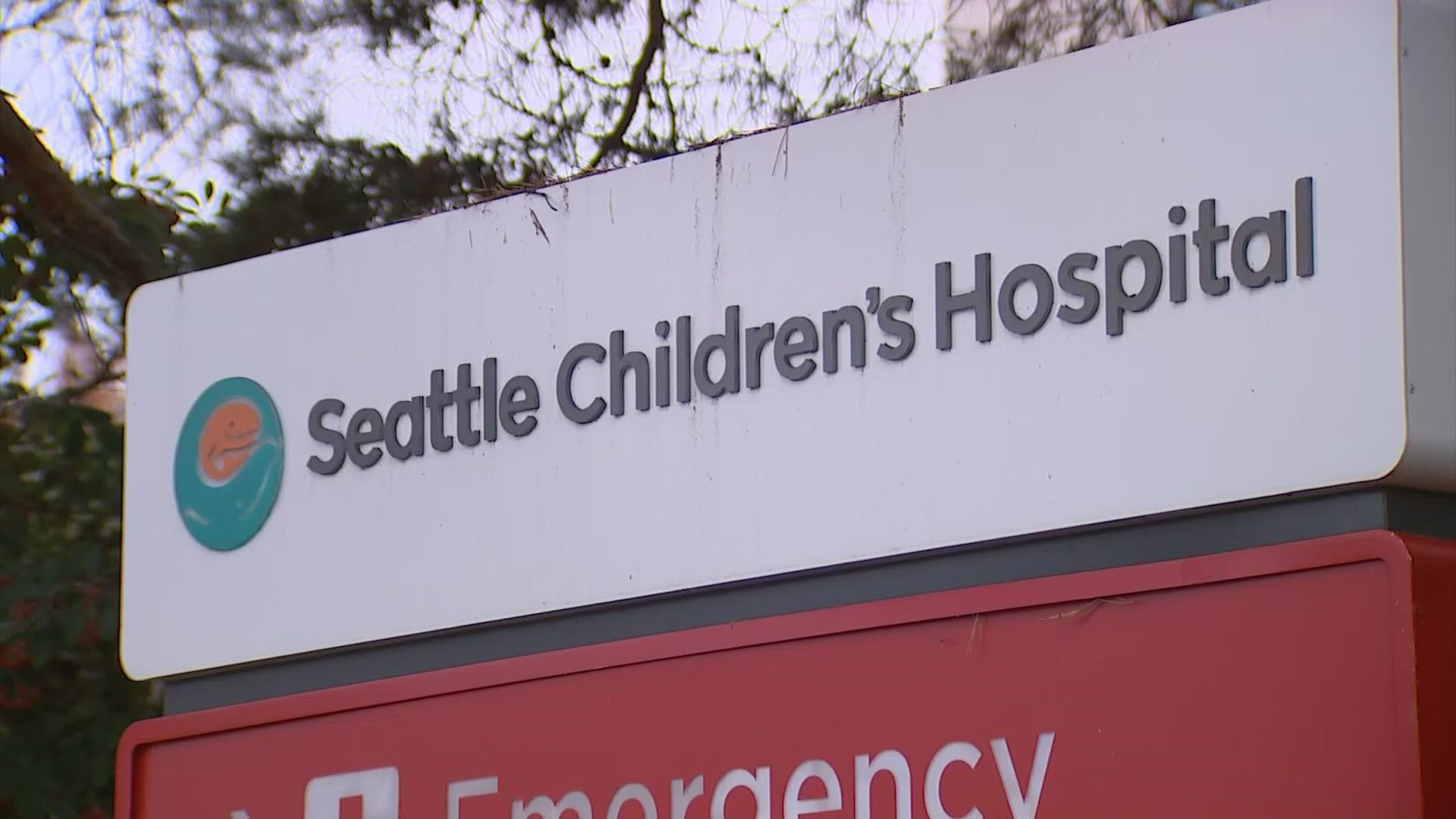SEATTLE — Washington Hospital officials are sounding the alarm about the mental health crisis and how it's impacting children as they fill emergency departments across the state.
Seattle Children’s has been hit with a tidal wave of patients in crisis in its emergency department.
"We're definitely seeing higher rates of suicidality. So, suicide attempts and suicidal thinking across the board,” said Doctor Eileen Twohy with Psychiatry and Behavioral Medicine at Seattle Children's.
A lack of available out-patient care facilities and healthcare providers nationwide means the ED is the only option for many families.
Nationally, emergency department visits for suspected suicide attempts increased dramatically in 2021, according the Washington Department of Health. For adolescent girls, the rate increased nearly 51%. For adolescent boys, the rate was a nearly 4% increase.
"The combination of things were already getting bad over the last decade, plus a pandemic, that really has not been good for anybody's mental health. As well as not having a large enough workforce to meet the need. I think it's really impacted us all,” said Doctor Alysha Thompson, clinical director of Psychiatry and Behavioral Medicine at Seattle Children's.
Seattle Children's developed the Behavioral Health Crisis Care Clinic and the goal is to provide resources for families, hopefully keeping them from needing emergency care.
Twohy co-founded the clinic.
"The crisis care clinic was built to provide families with kind of just in time access to care, and to really set families up with the evidence-based care that they need for their mental health crisis,” she said.
But the need for care far outpaces the ability to find out-patient solutions for many families.
"The reality is that we haven't had the ability to really meet the need. We don't have enough psychologist, psychiatrists, masters level therapists to meet the need to begin with, and then we've seen such a dramatic rise and increase that we just can't keep up," Thompson said.
Twohy told KING 5 the goal is continue growing the clinic and proving more resources to families.
“Our hope is that, over time, we're able to grow our clinic and other similar types of services to support people before the crisis gets to the level of a suicide attempt, or a real kind of emergency crisis. We're not there yet. And I think, you know, with additional resources, we're able to grow these kinds of supports throughout the community,” she said.
For parents concerned about their child’s mental health, Twohy suggests looking for resources before it becomes a crisis situation.
“In a crisis, you really do want to act quickly and get emergent help. But the goal is to act early as soon as you're concerned, to start having these conversations and get your kids connected to mental health treatment if needed.”
She suggests getting on waitlists with mental health facilities, calling county helplines, and contacting your child’s school for resources, but don’t avoid emergency care if it is needed.

